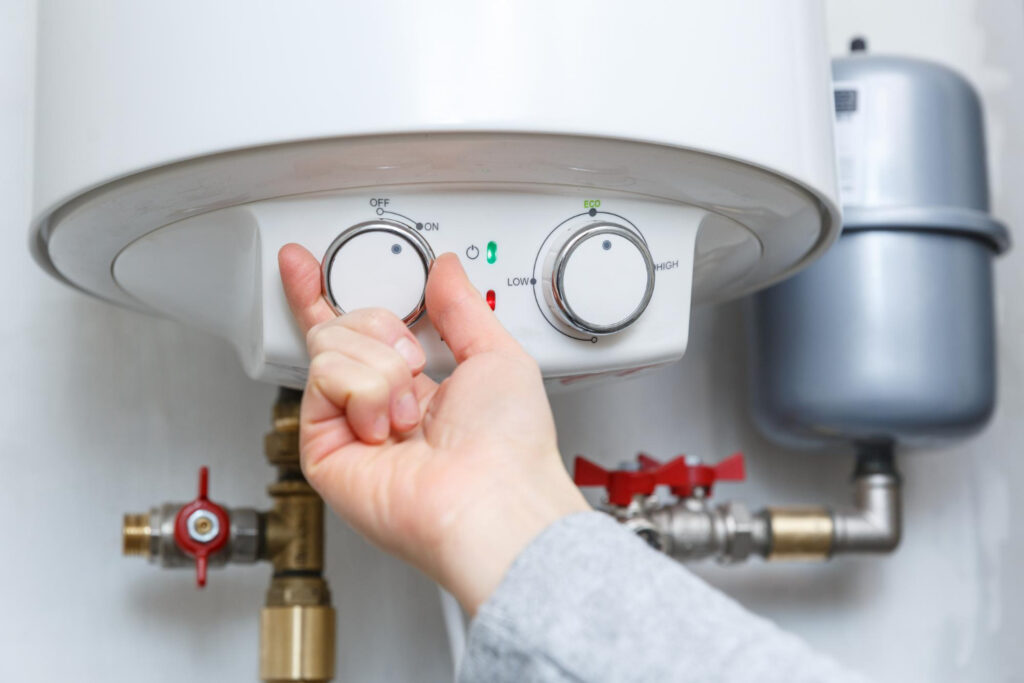In Santa Rosa Beach, the sight of rusty water flowing from your electric water heater can lead to several concerns. Discolored water isn’t just an eyesore—it can be indicative of underlying issues with your home’s plumbing system. Not only does rusty water have an unpleasant taste and odor, but it can also stain your fixtures and laundry, leading to further inconvenience. Understanding what causes this condition can help solve the problem before it escalates into costly repairs.
Residents rely on a consistent supply of clean water for day-to-day activities, and dealing with rusty water can be disruptive. If you’re experiencing such issues with your electric water heater, it’s important to identify the cause. By addressing the problem early, you ensure a steady flow of fresh, clear water and prevent further damage to your plumbing system.
Causes of Rusty Water from Electric Water Heaters
Corrosion inside the water heater tank is one of the primary causes of rusty water. Over time, the metal surfaces inside the tank can deteriorate, especially if the protective measures within the heater, such as the anode rod, are compromised. Anode rods are specifically designed to attract corrosive elements, but once they wear out, the tank itself becomes vulnerable to rust.
Another common cause is sediment buildup. Minerals naturally found in water can accumulate at the bottom of the tank, leading to rust formation when combined with heat. This sediment not only initiates rust but also can lead to inefficient heating, increasing energy usage and bills.
Issues with the anode rod might also lead to rusty water. The anode rod gets slowly dissolved as it protects the inner lining of your tank. If left unchecked, its depletion will allow corrosion to affect the tank wall directly, leading to rusting. Regular inspection and timely replacement of this component can offer significant protection against rust.
Signs Your Electric Water Heater Might Be Rusting
It’s crucial to know the warning signs that indicate rusting in your electric water heater. Discolored water emerging from your taps is often the first indication, and it’s easy to spot, especially when running a bath or filling a light-colored container.
A metallic taste or odor can also suggest rust within your water heater. If you notice an unpleasant change in the taste of your tap water, it might be time to investigate further. Additionally, rust might manifest as visible spots or patches on the fittings and connections around your water heater. If you detect these signs, it’s advisable to take action promptly to avoid more extensive damage.
Regularly paying attention to these indicators can help you maintain a well-functioning system and avoid severe breakdowns. By knowing what to watch out for, you can seek professional help and ensure that your water heater remains in optimal condition.
Solutions to Address Rusty Water
Addressing rusty water issues requires taking specific actions to restore the quality of your water. One of the first steps you can take is flushing the water heater. By flushing the tank, you can remove much of the sediment buildup that contributes to rust. This process typically involves draining the tank completely and then refilling it to clear out deposits. It’s advisable to have our professionals handle this task to ensure it’s done safely and effectively.
Another critical step is inspecting the anode rod, which plays a pivotal role in preventing rust within your water heater. If the rod is significantly worn or corroded, it should be replaced to protect the tank’s metal surfaces. Regular checks help in determining when replacements are necessary, safeguarding the unit against corrosion.
In severe cases where the tank is extensively corroded, a water heater replacement might be the best solution. While it is a larger investment, replacing an old and malfunctioning heater can save you from recurring issues and higher energy bills. Newer models often offer improved efficiency and longer service life, making them a worthwhile consideration.
Preventive Measures to Maintain Clean Water
Maintaining clear and rust-free water involves consistent care and preventive measures. To keep your water heater in peak condition, consider implementing the following practices:
– Regular Maintenance Routines: Schedule periodic flushing of the water heater to prevent sediment accumulation.
– Annual Inspections by Our Professionals: Have our technicians perform yearly checks on your water heater to catch early signs of wear.
– Water Softener Installation: If your local water supply has high mineral content, installing a water softener can minimize mineral buildup within the heater.
These proactive steps not only help in preventing rusty water but also enhance the overall performance and lifespan of your water heater.
Electric Water Heater Maintenance for Clean Water in Santa Rosa BeachEnsuring Clean Water with Proper Water Heater Maintenance in Santa Rosa Beach
Taking care of your electric water heater by addressing issues like rusty water promptly is essential for maintaining a reliable supply of clean water. Regular inspections and timely maintenance help prevent small problems from becoming bigger issues, ensuring your home stays comfortable and your appliances run efficiently.
Engaging professionals to handle maintenance and repairs ensures that expert knowledge is applied in treating your system with care. With the right strategies in place, residents of Santa Rosa Beach can enjoy peace of mind knowing that their water heating system is operating smoothly and efficiently.
If you are concerned about the impact on your water quality, learning more about our maintenance tips for electric water heaters in Santa Rosa Beachcan help you ensure your system runs effectively. Our professionals work to keep your water heater in top condition to prevent issues from becoming costly repairs. For a quick estimate or to book a service visit, please contact us today.



